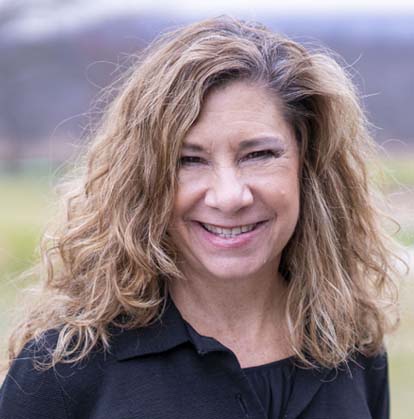Posted on December 20, 2023

By Diane Dellanno
Policy Analyst
For more information on this topic, contact Diane at ddellanno@acnj.org
Footnotes:
-
Kenneth J. Gruber et. al., Impact of Doulas on Healthy Birth Outcomes, 22 J. Perinatal Education, 49, 50–51; National Partnership for Women and Families, Improving our Maternity Care Now: Four Care Models Decisionmakers Must Implement for Healthier Moms and Babies. 7 (Jorge Morales ed. 2020). ↵
-
Astier Bey et al., Advancing Birth Justice: Community-Based Doula Models as a Standard of Care for Ending Racial Disparities 16 (2019). ↵
-
Visit the NJ Doula Learning Collaborative website for updated list of approved trainings (njdlc.org). ↵
-
Department of Human Services | First Lady Murphy & Human Services Commissioner Adelman Announce Enhanced NJ FamilyCare Maternal Health Care Reimbursement ↵
-
Getting Doulas Paid Policy Brief - HealthConnect One↵

What are Doulas?
Doulas are non-clinical support workers who provide continuous emotional, informational and physical support for individuals before, during and after labor. This includes explanations and guidance on medical procedures, lactation support, physical comfort measures during labor, education on coping skills and infant care, and encouragement of bodily autonomy and personal advocacy in the medical institution.
Community-based doulas are often of and from the same communities as their clients. As trusted members of the community, they help to bridge language and cultural barriers to pregnancy care and education.
Benefits of Doulas
There are widely noted health benefits to using doula services1 including:
- Reduce contributing factors of maternal mortality and morbidity in health care settings, particularly for Black women.
- Decreased risk of cesarean birth.
- Decreased usage of pain medication or epidural anesthesia.
- Lower rate of vacuum- or forceps-assisted birth.
- Increased rates of breastfeeding initiation, particularly among low-income and racially/ethnically diverse individuals.
- Decrease in length of birthing time.
- Increased Apgar scores for infants at birth.
Doulas can be particularly beneficial for Black, Indigenous and People of Color (BIPOC) with low incomes, who are more likely to have negative birth experiences.2
However, economic insecurity or lack of health insurance coverage means doula care is often out of reach for the families who need it the most.
The Issue
Due to inadequate compensation structures for this model of care, access to and availability of community-based doulas are lacking throughout New Jersey.
As of January 2021, doulas and doula agencies have been able to enroll as Medicaid/NJ FamilyCare providers in fee-for-services (FFS) and managed care. NJ FamilyCare doula care can only be provided by those doulas who have completed NJ Department of Human Services and NJ Department of Health training.3 The current doula reimbursement rate for standard care is $1,165, which includes up to 8 visits in the prenatal or postpartum period and attendance at the delivery for labor support.
All pregnant, birthing and postpartum individuals are eligible for doula care, regardless of medical complexity. Services are available starting in the prenatal period and up to 180 days postpartum. Doula services may be provided in the community, in clinicians’ offices, or in hospitals.
As of September 2023, 80 individuals and agencies are registered as FFS providers with NJ FamilyCare.
Issues Preventing Access to Doula Care
- The number of doulas in NJ is not sufficient to serve all the families that may potentially want to access doula care. There are approximately 30,000 Medicaid-covered births annually.4 NJ currently has 80 doulas who are able to bill Medicaid for their services. The availability of doulas that can bill Medicaid is not evenly distributed across the state creating geographic disparities. Since the average caseload of a doula is 3 to 4 birthing people per month, NJ will need at least 3,000 doulas to be able to sufficiently serve the Medicaid birthing population.
- There is a lack of scholarship opportunities to become trained as a doula. Scholarship programs need to be created to encourage more persons to enter the profession. There is also a need to recruit more organizations to provide the approved training.
- The Medicaid application and billing process are not designed for the community-based doula population. To become recognized as a Medicaid FFS provider is lengthy (72 pages), written for medical professionals and difficult to complete.
- The reimbursement rate for doula care lags far behind the average fee for private pay doulas. Most private doulas charge rates upwards of $2,000 per client.5 The standard fee a NJ doula can receive from Medicaid is $1,165.
Without a pathway toward adequate and reliable compensation and strategic investments in workforce development, the community-based doula labor supply will remain too low to meet the communities' demand.
Recommendations
- Increase the reimbursement rate for Medicaid doulas for both standard and enhanced care.
- Simplify the application process for doulas to become approved by Medicaid.
- Increase training and scholarship opportunities for persons interested in becoming a doula.
- Develop a sustainable community-based doula program that provides fair, equitable, and sustainable compensation to their doulas as well as regular pay, health benefits, and paid leave.

